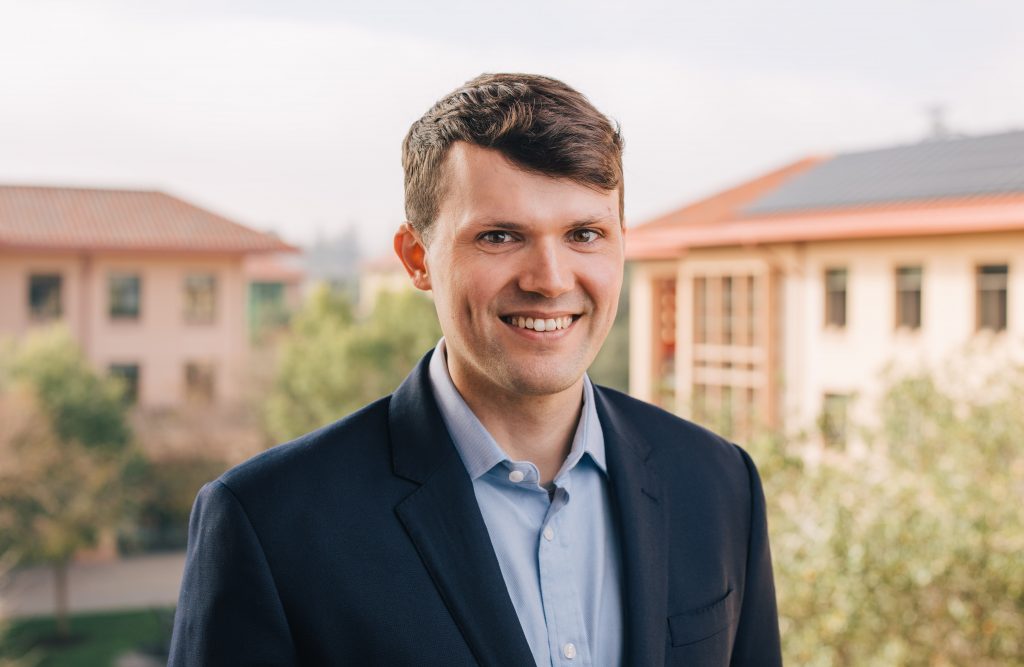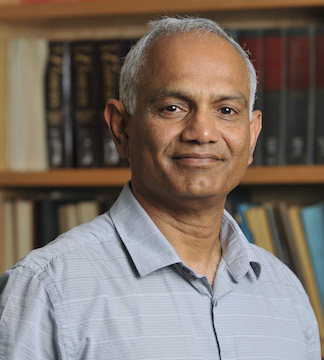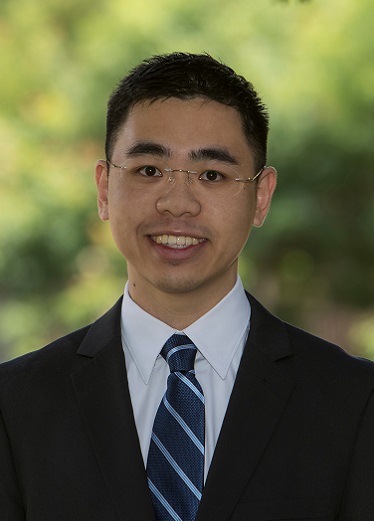 Weekly Work-In-Progress
Weekly Work-In-Progress
Presented by:
Tom Handley, MD
Knight-Hennessy Scholar
Stanford University
Title: Cost-effectiveness of Dapagliflozin for Non-Diabetic Chronic Kidney Disease
Bio: Tom Handley is an MD from the UK. He is a Knight-Hennessy Scholar studying for a master’s degree in Health Policy, with specific interests in transplant policy and optimization.
For dial-in instructions, please contact Ana Mezynski at mezynski@stanford.edu

Presented by:
Chuck Huber, PhD
Director of Statistical Outreach, StataCorp
Adjunct Associate Professor of Biostatistics
Texas A&M School of Public Health
This curriculum is designed to support beginner, intermediate, and advanced “Stata” users. The courses do not require registration and can accommodate up to 300 participants. The most recent and advanced version, Stata-16, integrates Python with Stata.
We strongly encourage you to participate!
Bio: Chuck Huber is Director of Statistical Outreach at StataCorp and Adjunct Associate Professor of Biostatistics at the Texas A&M School of Public Health. Most of his current work is focused on statistical methods used by behavioral and health scientists. He has published in the areas of neurology, human and animal genetics, alcohol and drug abuse prevention, nutrition, and birth defects. Dr. Huber currently teaches introductory biostatistics at Texas A&M where he previously taught categorical data analysis, survey data analysis, and statistical genetics.
Please direct questions to Lakshika Tennakoon, Data Scientist, Division of Trauma and Acute Care, Department of Surgery at lakshika@stanford.edu

Presented by:
Chuck Huber, PhD
Director of Statistical Outreach, StataCorp
Adjunct Associate Professor of Biostatistics
Texas A&M School of Public Health
This curriculum is designed to support beginner, intermediate, and advanced “Stata” users. The courses do not require registration and can accommodate up to 300 participants. The most recent and advanced version, Stata-16, integrates Python with Stata.
We strongly encourage you to participate!
Bio: Chuck Huber is Director of Statistical Outreach at StataCorp and Adjunct Associate Professor of Biostatistics at the Texas A&M School of Public Health. Most of his current work is focused on statistical methods used by behavioral and health scientists. He has published in the areas of neurology, human and animal genetics, alcohol and drug abuse prevention, nutrition, and birth defects. Dr. Huber currently teaches introductory biostatistics at Texas A&M where he previously taught categorical data analysis, survey data analysis, and statistical genetics.
Please direct questions to Lakshika Tennakoon, Data Scientist, Division of Trauma and Acute Care, Department of Surgery at lakshika@stanford.edu

Presented by:
Chuck Huber, PhD
Director of Statistical Outreach, StataCorp
Adjunct Associate Professor of Biostatistics
Texas A&M School of Public Health
This curriculum is designed to support beginner, intermediate, and advanced “Stata” users. The courses do not require registration and can accommodate up to 300 participants. The most recent and advanced version, Stata-16, integrates Python with Stata.
We strongly encourage you to participate!
Bio: Chuck Huber is Director of Statistical Outreach at StataCorp and Adjunct Associate Professor of Biostatistics at the Texas A&M School of Public Health. Most of his current work is focused on statistical methods used by behavioral and health scientists. He has published in the areas of neurology, human and animal genetics, alcohol and drug abuse prevention, nutrition, and birth defects. Dr. Huber currently teaches introductory biostatistics at Texas A&M where he previously taught categorical data analysis, survey data analysis, and statistical genetics.
Please direct questions to Lakshika Tennakoon, Data Scientist, Division of Trauma and Acute Care, Department of Surgery at lakshika@stanford.edu
 Zara Cooper, MD, MSc is an acute care surgeon, trauma surgeon, and surgical intensivist certified in palliative medicine at Brigham and Women’s Hospital in Boston.
Zara Cooper, MD, MSc is an acute care surgeon, trauma surgeon, and surgical intensivist certified in palliative medicine at Brigham and Women’s Hospital in Boston.

Balasubramanian Narasimhan, Dept. of Statistics
Presented by:
Dr. Dr. Balasubramanian Narasimhan
Director and Senior Research Scientist-Physical, Biomedical Data Science
Stanford University
Yulin Chien
Software Developer
Stanford University Research Informatics Center (RIC)
Eileen Kiamanesh
Research Data Analyst
Stanford University Research Informatics Center (RIC)
Title: “Introduction to the Research Informatics Center”
For dial-in instructions, please contact Ana Mezynski at mezynski@stanford.edu

Jeffrey Kwong is an MD Student and Master’s Student in Epidemiology and Clinical Research under the mentorship of Dr. Gordon Lee, Professor of Surgery (Plastic and Reconstructive Surgery) at Stanford University Medical Center.
TITLE: “Randomized Double-Blinded, Placebo-Controlled Trial: Transversus Abdominis Plane (TAP) Blocks in Breast Cancer Patients Undergoing Reconstruction with Abdominal Free Flap“
ZOOM DIAL IN:
For dial-in instructions, please contact Ana Mezynski at mezynki@stanford.edu.
 Wei Zhou, MD, FACS, is a professor of surgery and the chief of the Division of Vascular Surgery at the University of Arizona College of Medicine – Tucson.
Wei Zhou, MD, FACS, is a professor of surgery and the chief of the Division of Vascular Surgery at the University of Arizona College of Medicine – Tucson.

Presented by:
Chuck Huber, PhD
Director of Statistical Outreach, StataCorp
Adjunct Associate Professor of Biostatistics
Texas A&M School of Public Health
This curriculum is designed to support beginner, intermediate, and advanced “Stata” users. The courses do not require registration and can accommodate up to 300 participants. The most recent and advanced version, Stata-16, integrates Python with Stata.
We strongly encourage you to participate!
Bio: Chuck Huber is Director of Statistical Outreach at StataCorp and Adjunct Associate Professor of Biostatistics at the Texas A&M School of Public Health. Most of his current work is focused on statistical methods used by behavioral and health scientists. He has published in the areas of neurology, human and animal genetics, alcohol and drug abuse prevention, nutrition, and birth defects. Dr. Huber currently teaches introductory biostatistics at Texas A&M where he previously taught categorical data analysis, survey data analysis, and statistical genetics.
Please direct questions to Lakshika Tennakoon, Data Scientist, Division of Trauma and Acute Care, Department of Surgery at lakshika@stanford.edu